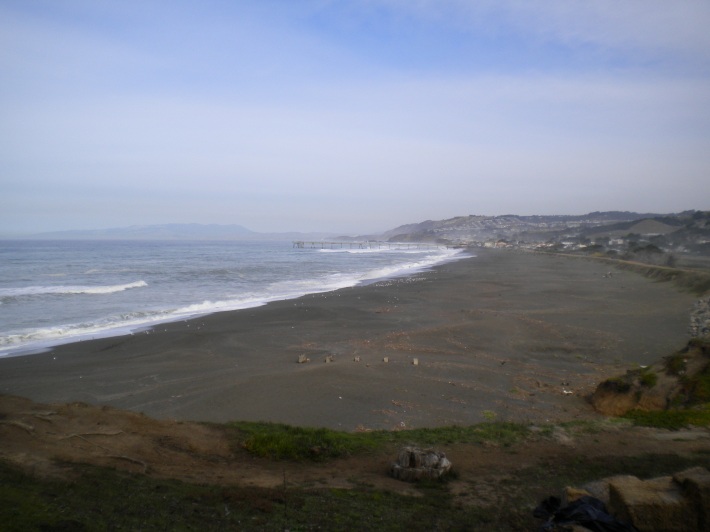“Echoes are forgotten, originals stay with you.”
– Steve Smith, Boston Globe City Editor
“Echoes are forgotten, originals stay with you.”
– Steve Smith, Boston Globe City Editor
 I remember the first time I ever felt that inexplicable need to write. I was so young, yet I knew that I had to commit these thoughts to paper, give them some permanence. I would admire their structure, their sound, their ability to give my creation life.
I remember the first time I ever felt that inexplicable need to write. I was so young, yet I knew that I had to commit these thoughts to paper, give them some permanence. I would admire their structure, their sound, their ability to give my creation life.
I think it is when I am home that I truly feel inspired.
A bicoastal life requires constant attention, inspiration becomes mechanical. As I try to maintain a certain level of productivity in life, work and my education, I lose all sense of the comforts of a home and begin to feel somewhat lost.
Most times, I come to loathe the phrases that once seemed true. They lose their charm and become tainted with the self-doubt that plagues most of my words. The passage of time ruins my perceived perfection, exposing it to be flawed, imperfect.
But sometimes, I succeed.
Sometimes the words just flow; I let the sound of them guide me. It is organic, the music in the language creates the meaning. It is these bits of creation that feel the most natural, and the most genuine, the most true. Sometimes I must simply allow the words to show me what I mean to say, and I feel them guide me to a place that, before, I could never have imagined or thought up. Some expressions reveal truth that I didn’t even realize, until I deconstruct the words that seemed to lead me to this place of beauty and truth.
It is in these moments that I feel truly inspired.
My introspective look at race relations in the U.S.
Interesting video; great advice for writers about career paths and getting into the business or writing.
I have to recommend John Scalzi’s blog Whatever for any writer—fiction no matter the genre (and I’m not really sure why you don’t read science fiction), non fiction, copywriting, or whatever. Not only does he share insights about writing, but also gives other writers plugs. He’s also funny.
And an example of how the SF & F community seems much more willing to pay it forward with other writers than writers in other genres.
Scalzi also recently posted an interview in which he talks about his background as a journalist and film critic, and about the most important event of his life–getting laid off at AOL and deciding to become a freelance writer. At that point he took control of his career. Something writers need to do more of, even this on.
So, enjoy this video.
—Todd
“If you would not be forgotten as soon as you are dead, either write something worth reading or do things worth writing.”
— Benjamin Franklin
50 Best Tips from the San Francisco Writers Conference (Part 1)
By Pauline Wiles
You used photos, videos, drawings — visuals!
I’m amazed, and dismayed, by how few bloggers consistently add visual content to their posts. A sea of words is daunting and dull. Magazines and newspapers know they must seduce readers into their material, not simply subject them to an unbroken and wearying sea of type.
You thought more like an editor
When you write for an editor, your ideas, and how you plan to express them, have to pass muster with someone else, often several. They usually ask you to explain, a little or a lot, why you think this story is worth doing now. Blogging offers writers tremendous freedom of expression — please don’t abuse it.
You remembered that your readers are busy, easily bored and quickly distracted
Journalists are taught to use the “inverted pyramid”, in which the most essential information in any story is at the very top, usually…
View original post 935 more words
Absolutely love this video!
“I think writing really helps you heal yourself. I think if you write long enough, you will be a healthy person. That is, if you write what you need to write, as opposed to what will make money, or what will make fame. ”
— Alice Walker
“There is creative reading as well as creative writing.”
— Ralph Waldo Emerson
While browsing the internet for inspiration and tips on how to improve my craft, I came across a bit of advice: If you want to write well, you need to read, a lot. Simple, right? Kind of a no-brainer..
I think I always knew this, but somewhere along the way, I forgot. I grew up with a voracious appetite for the written word. Books sustained me, I couldn’t get enough. I would read these beautifully written passages and wonder how the authors packed so much meaning and detail into them.
But then, I just stopped. I stopped reading, and, eventually, I stopped writing.
It wasn’t until my last year of high school that I took up the habit again. I rediscovered the wonder that a reader is afforded: wonder at the landscapes, the details, the characters. Reading great literature is like peeking into the mind of some great author and seeing how it works, how the ideas come together, how problems arise and how they are solved.
It’s easy to get discouraged about writing when you feel that you can’t express the most important details and remain true to your subject. But when you’re armed with an arsenal of knowledge, knowledge of what works and what doesn’t it’s easier to start, to keep going, and to perfect your writing.